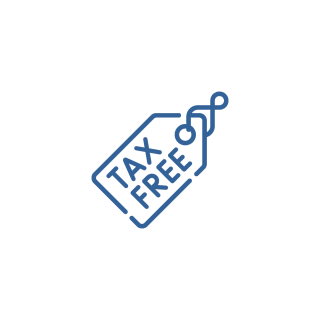A tax exemption form is a document that individuals or organizations can use to claim an exemption from certain taxes, typically for specific reasons outlined in tax laws or regulations. These forms vary by country, region, and the specific type of tax they pertain to. The purpose of a tax exemption form is to provide evidence or justification for why the taxpayer should not be liable for a particular tax or why a reduced tax rate should apply.
Here are a few common types of tax exemption forms:
-
Sales Tax Exemption Certificate: This form is used by businesses or individuals to claim exemption from paying sales tax when purchasing goods or services that are considered exempt under the tax laws. Exemptions may apply to items like essential medical equipment, nonprofit organization purchases, or certain types of food.
-
Income Tax Exemption Form: In some cases, individuals or organizations may qualify for exemptions from paying income tax due to their income level, specific activities (such as charitable work), or certain types of income (like tax-exempt interest income).
-
Property Tax Exemption Form: Property owners may use this form to claim an exemption or reduction in property taxes, often for reasons such as owning a primary residence, being a senior citizen, or having a property used for specific charitable or nonprofit purposes.
-
Estate Tax Exemption Form: When an individual passes away, their estate may be subject to estate taxes. However, there are exemptions and deductions available, and a form is typically used to claim them.
-
Gift Tax Exemption Form: If you give gifts to others, you may be subject to gift taxes, but there are exemptions and exclusions available. A form is used to report gifts and claim applicable exemptions.
-
Value Added Tax (VAT) Exemption Form: In countries with a VAT system, businesses may use this form to claim exemptions or reduced VAT rates on certain transactions or goods, often related to exports, essential goods, or specific industries.
It's important to note that tax exemption forms are subject to specific rules and criteria established by tax authorities. To claim an exemption successfully, individuals and organizations must meet the requirements outlined in the relevant tax laws, and the tax authority typically reviews and approves or denies the exemption based on the information provided in the form.
If you believe you qualify for a tax exemption, it's advisable to consult with a tax professional or the relevant tax authority to ensure you complete the necessary forms correctly and meet all eligibility criteria. Additionally, tax laws and forms may change over time, so it's essential to stay informed about the latest regulations and requirements.
Tax exemption certificates are important documents that allow certain individuals or organizations to make purchases without paying sales tax. These certificates are issued by state or local governments and are generally used for purchases that will be resold or used for a tax-exempt purpose. Each state or jurisdiction may have its own specific tax exemption certificate form with its own unique official name. In this list, we will provide the official names of some of the most popular tax exemption certificate forms used in various states and jurisdictions.
- SF 1094. The United States Tax Exemption Form
- Form SUT 3. Purchaser's Statement of Tax Exemption - Virginia
- Form DTF-803. Claim for Sales and Use Tax Exemption - Title/Registration
- Form 12-302. Texas Hotel Occupancy Tax Exemption Certificate
- Form REV-1220. Pennsylvania Tax Exemption Certificate
- Form BOE-266. Claim for Homeowners Property Tax Exemption
- Form DTF-950. Certificate of Sales Tax Exemption For Diplomatic Missions And Personnel
- NYS DMV Form UT-11C. County Use Tax Exemption Certificate
- SUTEC Application. Sales and Use Tax Exemption Certificate Application (Maryland)
- Sales Tax Exemption Certificate - ST-5 (Georgia)
- Sales Tax Exemption Certificate - ST-3 (Illinois)
- Sales and Use Tax Exemption Certificate - ST-129 (New York)
- Sales and Use Tax Exemption Certificate - ST-12 (North Carolina)
- Resale Certificate - ST-120 (New York)
- Resale Certificate - ST-4 (Georgia)
- Streamlined Sales Tax Certificate of Exemption - SSTGB Form F0003 (Multistate)
- Uniform Sales & Use Tax Exemption/Resale Certificate - MTC Form ST-4 (Multistate)
- Sales Tax Exemption Certificate - S-211 (Texas)
- Exemption Certificate - DR-14 (Florida)
In conclusion, understanding the various tax exemption certificate forms and their official names can be helpful for individuals and organizations looking to make tax-exempt purchases. It is important to note that the official names of these forms may vary depending on the state or jurisdiction, and there may be additional forms available depending on the specific tax or industry. Consulting with a tax professional or attorney can provide further guidance on which forms are applicable to a particular situation.

